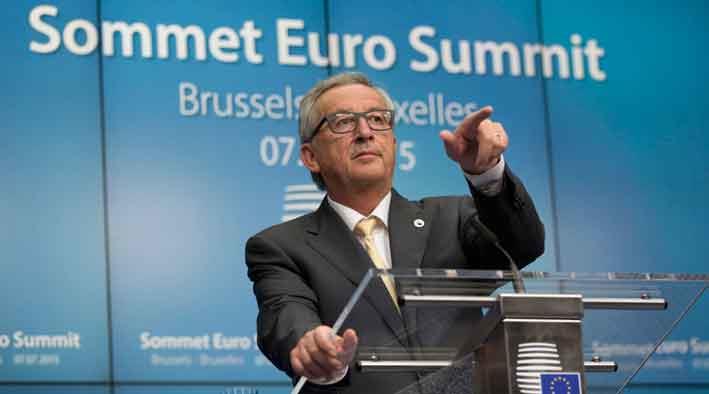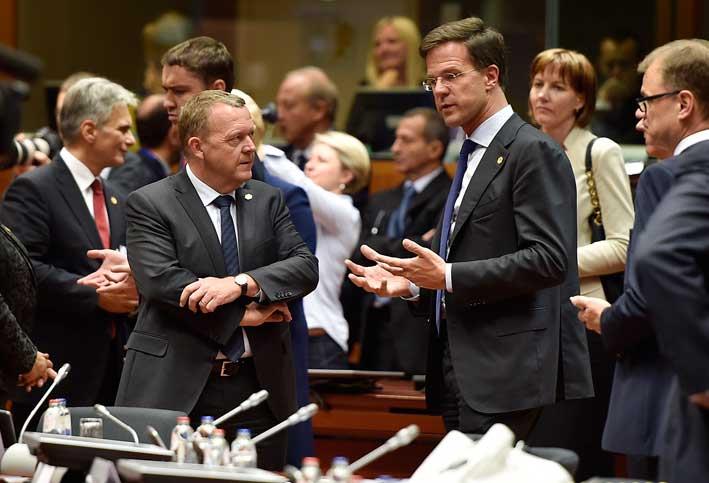“We are the representation of the Commission in Malta,” begins Dr Grech while talking to The Malta Independent. The European Commission is the executive branch of the EU, it drafts policy legislation and presents it to the Council and Parliament for approval. Once a piece of legislation gets approved, it then becomes law and it is also the responsibility of the Commission to ensure that the law is enforced.
Asked about her specific responsibilities as a Commission representative in Malta, Dr Grech explained that “our role is to transmit and explain what the Commission is doing Brussels. We must also transmit the implications of any laws adopted in Brussels for Malta, reflect dialogues that are going on and give publicity to what the Commission is doing.”

“I also have to report back to Brussels on what the situation is in Malta on things of general interest, perception of EU sentiments, and for example just to name one, what the Maltese perception on the proposed British referendum is. I also have to report back on national issues, such as Air Malta privatisation to give another example.”
“The main function of my role is to keep the lines of communication open. if there are particular discussions on a piece of legislation however,and it had been flagged in advance that Malta has an ongoing domestic issue on that regard it is expected that Malta will have a firm position, so it’s good to be prepared.”
“We also often have Commissioner visits here. President Juncker often calls prime ministers in the different Member State. If he has to speak to the Maltese Prime Minister or other Maltese ministers, he knows what’s on their mind, what is going on and what the concerns are.”

Providing an accurate picture of the Commission’s work
“Our role is not towards the government, because the government goes to Brussels all the time. Our role is visavis the public, because media report however they want. Peoplealso don’t always follow the media and our role is to give an accurate picture of what the implications are of work carried out by the Commission.We also want to let citizens know what their rights are in terms of EU legislation and benefits that can be obtained following certain steps taken in Brussels.”
Asked about whether the perception that the Maltese are generally quite disinterested in EU affairs, and are much more interested in local politics, Dr Grech said:
“Indeed that is one of the challenges Isee. In a way I think it is positive in the sense that as long as things are going well, local politics is all that matters to Maltese people. Then if there is an issue like arrivals of migrants we look to the EU for solutions. We ask why the EU doesn’t do more about this. I think all of us here in this office would like to create a more balanced situation. It has improved a lotI have to say since accession, but Diane and I started working soon after Malta’s accession and there was very little awareness of what citizen’s rights are as EU citizens.Now it is much more known or appreciated. People call in here asking where do I go for this thing and what are my rights in this regard, so there is awareness. We would like to make it more of a run of the mill situation.”

“We think about how political decisions taken in Brussels are reflected in the Member States, and what that means to the European citizen. Malta is a very small country so in that sense it should be easy to reach everybodybut it surprises me quite a lot when you listen to foreign media for example, people seem much more aware of where Europe is concerned, where something is due to decisions taken in Brussels rather than in their own country.”
Turning to why Maltese tend to be so isolated from what happens in Brussels, Dr Grech said:
“I think the main issue with this mentality so to speak is our island status. We are a very small island relatively far away from Brussels. If you live in Paris and things happen in Brussels you are physically closer, so the implications are, without wanting, somehow more tangible. Here people are concerned with domestic issues because this is what is more tangible; this is what affects them first and foremost.”
“It shouldn’t be that way but this is how I explain it to myself. Distance does make us isolated as an island, just to name an example when there were the terror attacks in Paris, people inBrussels felt it a lot. People were really scared, I don’t think that was the situation here. People went along with their normal lives but in Brussels there were profound repercussions especially because some of the terrorists came from Brussels themselves. In Malta it was business as usual, this is how I explain it to myself and this is what we would overcome.”

“Even though we are detached, I believe that Malta has an equal right out speak just as much as Germanyor France and our concerns are just as equally taken into account; it’s not the size that makes the difference. We just have fewer concerns then other Member States for example. The bigger the population the more interests you have so governments have to find a very fine balance between different parties whenever proposals are being discussed at the European Council. In Malta it’s a more straightforward issue so perhaps even at government level there is not so much discussion very often unless it’s a subject that deeply concerns Malta like migration. I think Cyprus it’s pretty much the same story, they are an island, far from Brussels, much more affected from things happening in their region, like what happens in Greece, Turkey, Syria and so on.”
Dr Grech was appointed to her new role on January 1, 2016. She has had a long career both in Brussels with the Commission and with the Maltese government at the Ministry for Foreign Affairs. Dr Grech has not lived and worked in Malta for a number of years, therefore just two weeks into her new role, back in her home country, this newsroom asked her how difficult it has been to reorient herself back into the Maltese scene:
“When I start a new job I like to meet the colleagues, what they do, who they are, what problems need resolving and how we can create a better team atmosphere. This week there were a lot of public events and interviews. I like to keep myself informed as to what is happening locally as that is part of my job, keep myself informed what is happening in Brussels and then attend any events, organise events, brainstorm with colleagues on what we can organise and transmit messages in the right way. See if we need to speak to people, I want to meet key people in the Maltese administration, civil society, NGOs and stakeholders to try and get the feeling and understand what is happening on the ground and how we can improve our performance as a representation.”